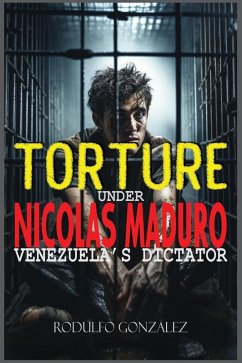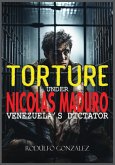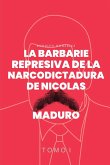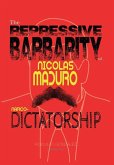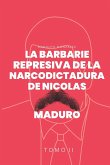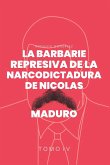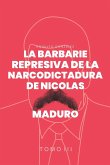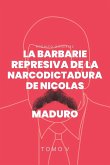In one of his few moments of sincerity, the late leader of the Socialist Party of Venezuela, Aristóbulo Istúriz, recognized that if the regime of the lieutenant colonel (retired) eliminated exchange control, the source of the Boli bourgeoisie would be collapsed. By analogy, it can be stated that without torture, which is not temporary but a State policy, the narco-dictatorship would fade, since it would lose its basis of support if we take into account that this crime against humanity has as its executors low, medium and high-ranking military and police officers and Cuban henchmen, unscrupulous, dehumanized, cruel, who act with the greatest impunity, since neither the Attorney General's Office nor the Ombudsman's Office They act against the torturers, and the civil and military judges respond to the bastard interests of the regime, deviating from the Constitution and the laws of the matter, therefore becoming accomplices of those criminal acts that never prescribe and are judged by the International Criminal Court. The oral report presented by Marta Valiñas, president of the Independent International Fact-Finding Mission on Venezuela, at the 49th session of the UN Human Rights Council demonstrated that the chain of command, starting with Nicolás Maduro, was responsible for the torture and cruel and degrading treatment against political prisoners that occurred in the DGCIM, directed by Rafael Hernández Dala, who is also head of the presidential guard of the Miraflores palace. In no way do I intend to cover the entire plot of cruelty carried out by the extermination forces of the narco-dictatorship against political prisoners and their families, many of whom have had to take refuge abroad. This complex task would require a team of specialists, which I do not have. My purpose is to record in cyberspace and on paper the human rights violations of an outlaw regime that rewards its henchmen with immoral promotions and other people's real and private property. This is my contribution to the contemporary history of my beloved Venezuela, in the stormy moments of decline that it suffers as a consequence of the 21st century socialism promoted by Lieutenant Colonel (retired) Hugo Chávez and that has turned more than seven million of its children into external migrants.
Bitte wählen Sie Ihr Anliegen aus.
Rechnungen
Retourenschein anfordern
Bestellstatus
Storno

